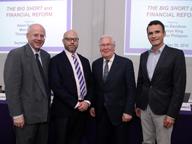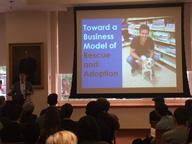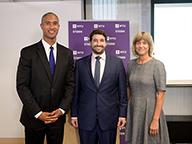Faculty News
—
Professor Xavier Gabaix's new research on macroeconomic theory is referenced
—

Excerpt from Bloomberg View -- "...the highly respected Xavier Gabaix of New York University has incorporated the idea into a new model."
Faculty News
—

Excerpt from Bloomberg View -- "...the highly respected Xavier Gabaix of New York University has incorporated the idea into a new model."






















